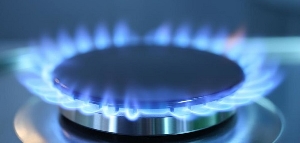Traditional food vendors popularly known as “chop bars” and school feeding caterers in Accra will from October 2024 benefit from an efficient and cleaner-burning LPG cookstoves initiative.
The initiative being pioneered by Envirofit, a social enterprise that focuses on innovating smart energy products that impact lives on a global scale, will see the establishment of a second production factory that will produce commercial LPG cookstoves.
Mr Nathan Lorenz, Chief Technology Officer at Envirofit, explained to the Ghana News Agency (GNA) that the move was to reduce fuel cost of food vendors, lower their dependency on charcoal and improve the health of workers.
Already, he said a pilot project preceding the scale-up had shown that many food vendors were willing to switch to the improved and efficient cook stove.
“The chop bar operators are waiting to switch to the new technology. We are seeing fuel energy budget of food vendor reducing between 40 to 60 percent. It is clean, fast, healthy and convenient,” he said.
“Ghana is not the only market of our focus but other West African countries. We are recruiting highly skilled artisans from in country at our factory for production and after sales service.”
Mr Emmanuel Osae-Nyarko, the General Manager of Envirofit Ghana Limited, said majority of food vendors use wood-based fuel stoves, therefore the switch will see significant improvement in their operations, from fuel savings to cooking time savings as well as serving their customers well.
The initiatives, he noted, would help the country contribute to the global agenda of conservation, restoration and sustainable use of terrestrial and inland freshwater ecosystems and their services, in particular forests, wetlands, mountains and drylands.
Mr Osae-Nyarko stated that the initiative provided additional jobs for the youth in the project value chain, including the production factory, marketing and sales as well as building local capacity.
Madam Janet Sesi, an owner of a tradition food vendor, who participated in the pilot acknowledge that the improve stove was a time saver, explaining that “I know longer wake up at 3:30 am and finish cooking by 6am. It has shortened cooking time by an hour allowing me to have enough rest.”
She added that the use of the improved stove had improved the sanitary conditions at chop bar area.
Ghana is focusing on tapping into the fortunes of the carbon market by creating demand for 24 million tonnes of carbon as part of its climate mitigation measures under article 6.2.
Since 2020, Ghana has signed cooperative agreements with Switzerland, Sweden, Singapore and South Korea towards mobilising sustainable finance to implement the NDC programmes.
Clean cooking is one of the about 54 pipeline projects that are currently developed in varying stages of the mitigation activity cycle, which the country envisages to unlock over 850 million dollars from these projects.
Click to view details



Business News of Sunday, 18 August 2024
Source: GNA

















